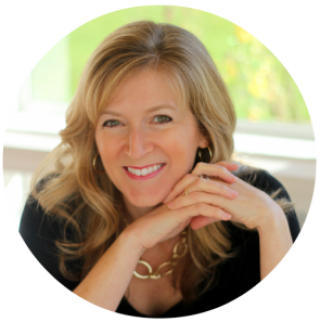
While my son splashed through his first day with the local Special Olympics swim team, I scanned the faces surrounding the steamy caldron of our neighborhood swimming pool. I recognized a woman in the bleachers, unsure of how I knew her until her daughter slid gracefully out of the water and approached me with a slightly awkward gait.
Additional resources
For more opportunities for your young adult to begin building their village, browse through your local Parks & Recreation Guide for Adaptive Recreation Programs. Other great opportunities to connect in the Seattle area are Seattle Children’s Alyssa Burnett Adult Life Center, Outdoors for All Foundation, The Tavon Center and Friendship Adventures.
“You’re Andrew’s mom. You drive a red Toyota van,” she said, shaking huge droplets of water onto the pool deck.
I stared at her, remembering a little girl with brown hair and an intense smile, a girl who now lived in a woman’s body. “I am! I’m so happy to see you, Sarah! It’s been years,” I said, as she turned on her heels and walked away. Her mom glanced up from her phone and I waved as the two of them headed to the locker room.
Sarah is 23 years old and autistic. So is my son, Andrew. They were in the same classroom in the first grade, crisscrossing paths through elementary school. I hadn’t seen Sarah in 12 years, yet she recalled my red Toyota minivan from a first-grade field trip.
After practice that day, I lingered in the lobby with the other parents. Like me, their kids are grown but parenting remains a full-time job. We are a motley tribe of seasoned parents trying to figure out the best way to transition our kids from childhood into adulthood.
From my corner, I watched as two semi-wet boys emerged from the locker room and climbed onto an Access bus. I heard one father talk about his daughter in Section 8 housing, and a mother looking for a roommate for her son who planned to take classes at Bellevue College in the fall. Two moms sat in chairs next to the smoothie bar, talking about SSI, DSHS, DDA and DVR — an alphabet of letters regarding Social Security benefits, disability services and vocational training that can make any parent’s head spin.
When Andrew turned 18, the thought of launching him into the world felt so daunting and confusing that it was almost crippling. But as he made the leap from high school to young adulthood, I discovered a few important ways to make that launch easier.
As he approached high school graduation, I enrolled him in a transition program through our local school district. Transition programs can be a great place to foster independence, and some have the School-to-Work program imbedded into their curriculum. A successful program depends on a healthy partnership between the school, a job coach, the student and parents. Andrew worked with a job coach for a year while practicing the skills he needed for a successful job placement that utilizes his natural talents and interests.
When Andrew neared age 21, I began tackling more complex questions. Would he be able to live independently? Should I be his guardian? Where would I even begin?
When Andrew neared age 21, I began tackling more complex questions. Would he be able to live independently? Should I be his guardian? Do I need a Special Needs Trust to ensure that his needs would always be met? Is he eligible for Social Security? Where would I even begin?
These questions paralyzed me. At the suggestion of his transition team, I contacted my local chapter of The Arc. The Arc offers classes, events and one-on-one coaching for people with intellectual or developmental disabilities and their caregivers. With the help of their staff, I was able to make informed decisions regarding Andrew’s care. They also referred us to places in the community where we could develop social connections, including the Special Olympics swim team.
That first evening at the pool, Sarah’s mom stopped me in the lobby. “There’s a group of young adults with disabilities that get together for bowling on Saturday mornings,” she said. “Andrew should join us.”
The next week we showed up at the bowling alley, and Andrew has played there every Saturday since. He and his teammates communicate over French fries and strawberry milkshakes while tossing, and sometimes bouncing, a large heavy ball down a long skinny lane. Like Andrew, these young men and women are finding their village and supporting one another along the journey of life.











